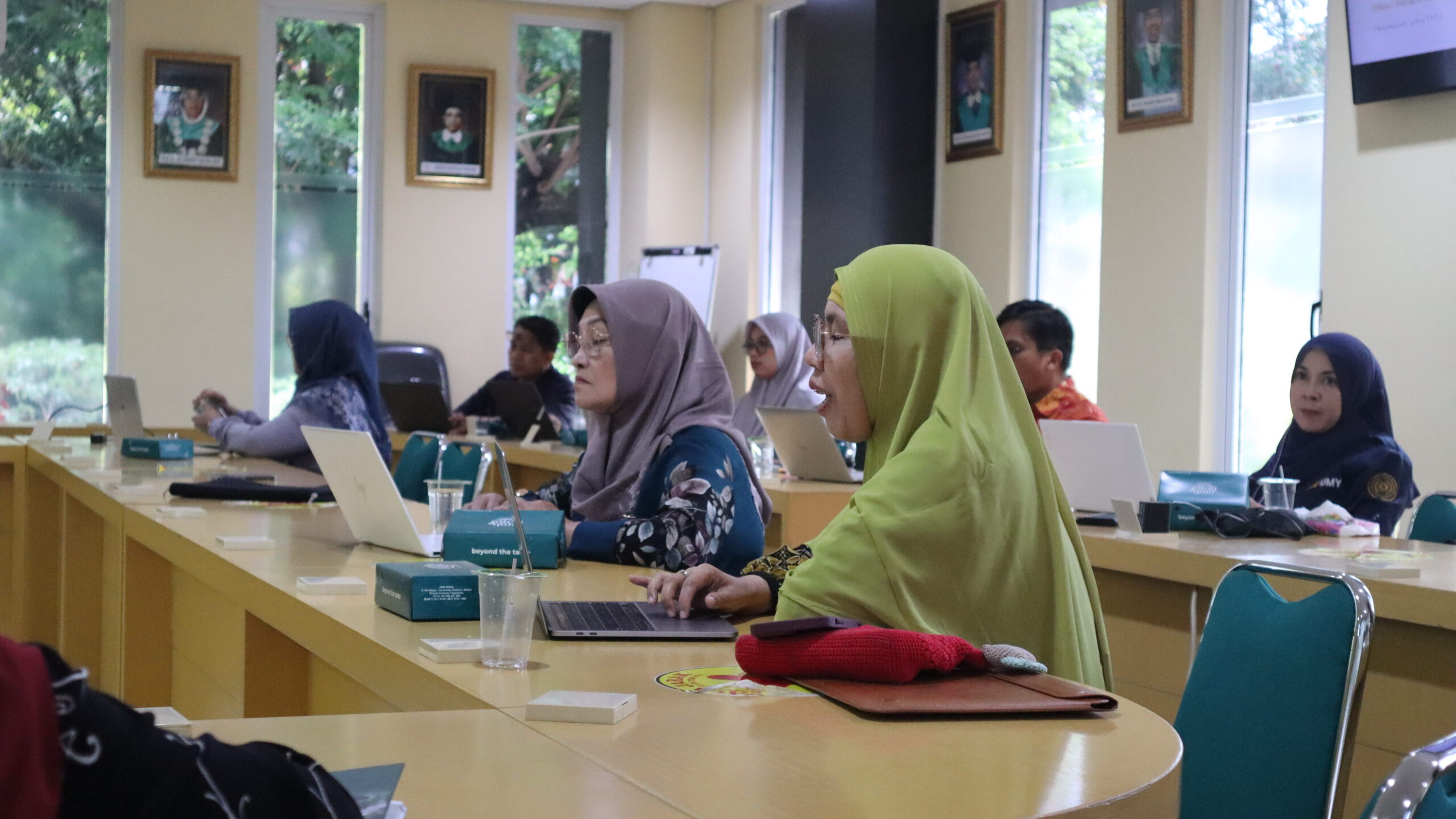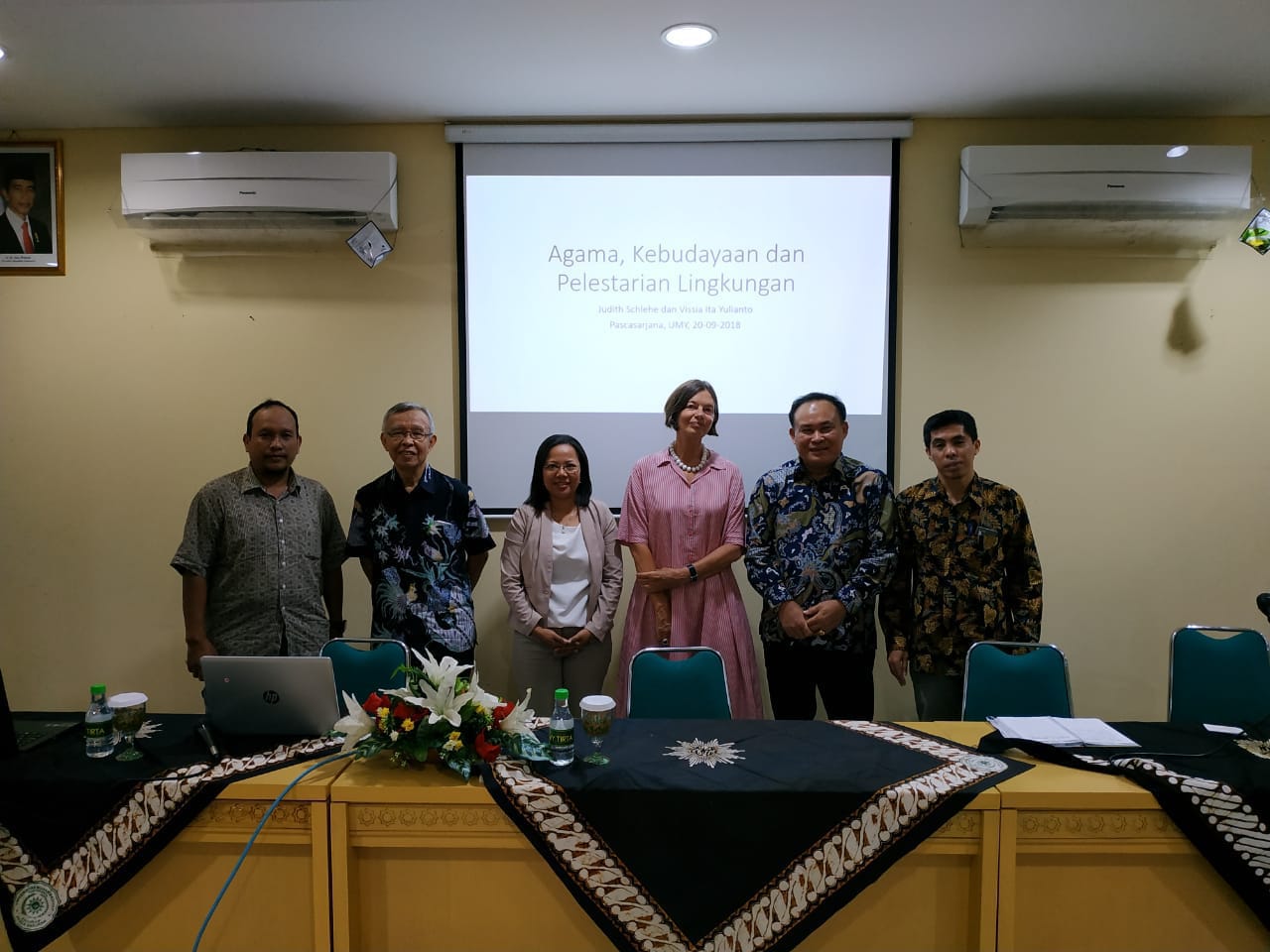

Indonesia is one of the five largest producers of plastic waste in the ocean. Indonesia produces 64 million tons of waste each year, 14% of which (9 million) consists of plastic waste and 3.6% of which ends up in the world’s oceans. Many studies have shown that Indonesia has become the second largest marine polluter in the world, contributing about 1.3 million tons of waste per year to the waters. Until now, 5.25 trillion pieces of plastic waste are still floating in the open ocean and the volume of floating waste in the open ocean is almost equivalent to all the large islands in Indonesia.
“Waste is a serious problem. Waste/dirt creates an entity that can threaten order, and it represents a social disturbance. A disordered world will symbolize danger,” explained Prof. Judith Schelehe as a Keynote Speaker at a limited Public Discussion of the UMY Graduate Program on Thursday morning (20/9), in the Graduate Director’s Meeting Room, Universitas Muhammadiyah Yogyakarta.
The danger is not only related to what humans do to waste, but also what waste has done to the environment and to all of us. In addition, these dangers often start from everyday habits such as burning waste, which can cause various diseases in our environment.
“Unconsciously, plastic symbols have become a lifestyle in Indonesia. The perception of modernity often ignores the dangers of production. At almost every event, we keep adding plastic waste that has become our culture,” said Dr. Ita Yuliato as a Keynote Speaker at the Public Discussion added.
In fact, plastic waste can be minimized by using traditional materials. For example, snack wrappers that originally used plastic can be changed to banana leaves and the like. So, not only do we utilize nature, but we also feel part of it.
There are many ways to preserve the environment in the religious dimension. For example, creating an Environmental Care Da’wah program or slogans containing morals to not poison nature. In addition, there is still a need for public awareness of environmental preservation, religion, and culture.
Although not all waste can be eliminated, as a society we can still reduce waste and optimize waste banks, which are a manifestation of our love for nature. In addition, we can also create creativity that comes from waste that can still be processed.
“Hopefully, waste can be managed well through JPSM (Independent Waste Management Network) and produce something through waste banks that have economic value and can be utilized by collectors,” said Suharto, a representative of the Bantul Regency Environmental Service.
Prof. Judith also added that “We need public awareness and government responsibility to manage waste and preserve the environment. If environmental management and government are good, then the people will also be comfortable.”